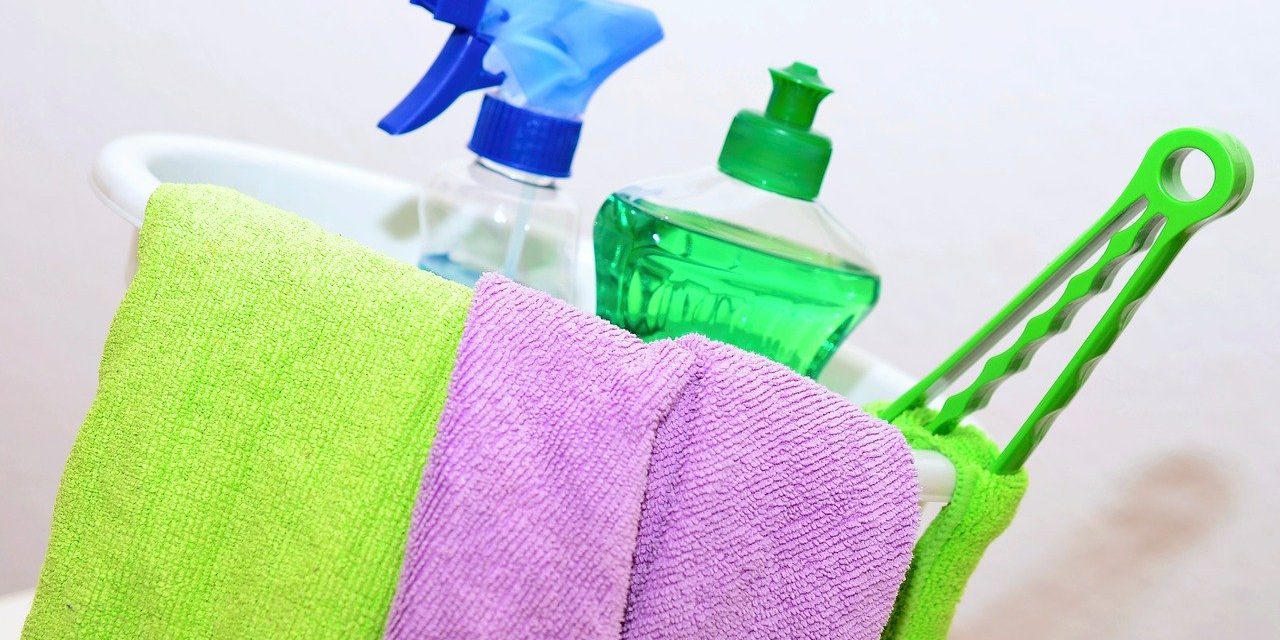Workplace spaces need to be safe and hygienic for employees and visitors even if your business is not involved in food preparation. According to the UK Government Workplace Regulations 1992, “Every workplace and the furniture, furnishings and fittings” have to be kept clean.
Basic hygiene in the workplace includes personal hygiene; work area cleanliness; clean toilet facilities; and a clean kitchen area for people to prepare and eat food. Having a clear workplace hygiene policy is a good way to make sure employees maintain a clean and safe environment. Here are our top hygiene rules to enforce in the workplace.
Why hygiene is important in the workplace
Having good hygiene systems in place will help to keep your workforce healthy and that could mean they are more productive. Evidence suggests that workers take less time off for sick leave if they work in a healthy environment. High amounts of sick leave can place financial strain on small businesses but by making small changes and having good practices in place – these numbers may be reduced.
Maintaining good hygiene in the workplace
Tips for maintaining good hygiene practices in the workplace include the following. Create a hygiene policy and let your staff know what is expected. Make sure the toilet and bathroom areas are clean and inspected regularly. The area needs to be well-stocked with essentials such as toilet paper, soap and hand towels. Provide cleaning products, wipes and hand sanitizer to help staff keep their equipment and workspaces clean.
Staff will be more likely to use these items if they are available. Make sure the kitchen areas and toilets are regularly cleaned. Try and keep your desk clean and dust-free. Encouraging staff to eat their lunch away from their desks can help keep work areas tidy.
The importance of keeping work areas clean
Nobody wants to work in a grubby environment. Businesses should ensure employees have supplies to clean their own workstation and work areas. This is particularly important if you hot desk and share a computer. Regular cleaning of surfaces with disinfectant or antibacterial wipes can help reduce infection and illness from germs.
How to improve the toilet hygiene in a business
Make sure the staff toilets are well stocked with toilet paper, soap and hand towels. Empty waste bins regularly. Frequent cleaning of surfaces, toilet bowls and sinks can make the environment more pleasurable to use and reduce the risk of infection. Make sure you always wash your hands after using the toilet. Working in a clean space can also encourage and promote employees to keep those spaces spick and span.
The importance of good hygiene in an office kitchen
Any shared environment needs to be a clean and tidy space. Good hygiene is vital in the kitchen. Encourage employees to clean up after themselves when they have finished in the kitchen. Stack the dishwasher and clean work surfaces. Wash up tea and coffee cups and throw away leftover food. Having a regular clear out of the fridge and old unused food can also be a good thing to do regularly.
Try and leave a work kitchen as clean as you would leave the kitchen in your own home. Different rules and regulations apply for businesses that prepare food in a commercial kitchen.
The importance of personal hygiene in an office
Dealing with a smelly co-worker can be an awkward issue for business owners and bosses. Having a clear policy lets employees know what is expected from them. If there is an issue with one of your members of staff, make sure you meet with them in private to explain what the problem is. Give them a chance to rectify the situation.


















